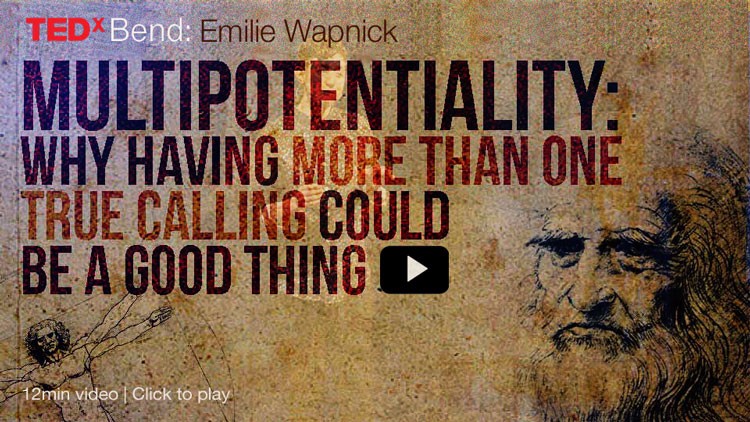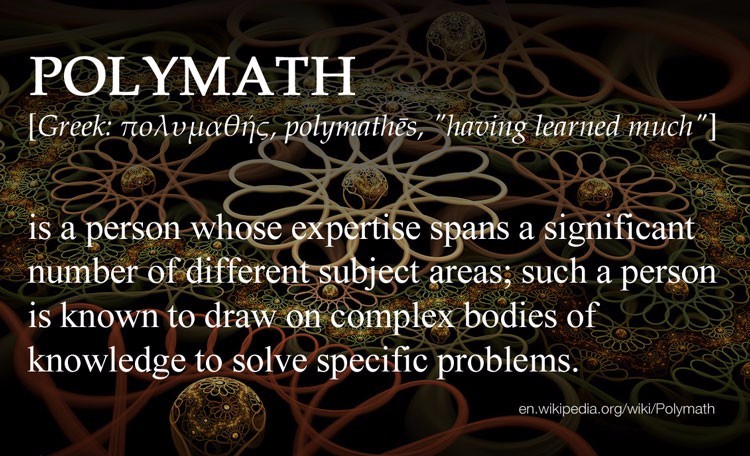
Author, entrepreneur and artist, Emilie Wapnick was blessed with so many interests that she was unable to pick just one. She studied music, visual arts, film production and law, and graduated from the Law Faculty at McGill University. After years of feeling anxious about her zigzagging career path and hyphenated credentials, she finally decided to embrace her plural nature and start a movement for others who lean toward being “multipotentialites.” Since launching her website, Puttylike, in 2010, Wapnick has inspired thousands of multipotentialites to stop trying to fit themselves into boxes, and embrace their plurality. She has been featured in Lifehacker, The Financial Times, and The Huffington Post. Currently, she is working on her forthcoming book, “Multipotentialite”.
In her talk at TEDxBend 2015, Emilie called on the audience to “ask yourself where you learned to assign the meaning of wrong or abnormal to doing many things”. I know the answer to this. The problem is that sometimes, particularly in those hiatus periods between gigs and especially after I’ve spent a long time focused on one single-disciplinary job, I find myself doing it again – “assigning the meaning of wrong or abnormal to doing many things”. Asking myself questions like “Do I appear unfocused to potential employers/clients?”; “should I re-balance my CV or LinkedIn profile (or this website!) towards a single specialism?” In fact I have spent a lot of time producing bespoke CVs despite being conscious of the value all of my experience would bring to the role.

On the job, however, it’s more often the case that my aptitude for idea synthesis, rapid learning and adaptability, inherent to multipotentialites (or polymaths), are proved to be of enormous value to the project.
Despite this the prevailing culture often creates conditions in which every now and then we need to stumble across a talk like this on TED or dive into a copy of Barbara Sher’s book Refuse to Choose in order to maintain confidence in ourselves as valuable and committed innovators. After all we know that a life as a reluctant specialist on a promotion motivated, linear career path won’t necessarily make us happy. As Emilie says in her talk, “following our curiosity down those rabbit holes” and “embracing our inner wiring leads to a happier, more authentic life”.
The video above can also be viewed with subtitles and an interactive transcript in 22 languages at TED.com










Discussion
No comments yet.